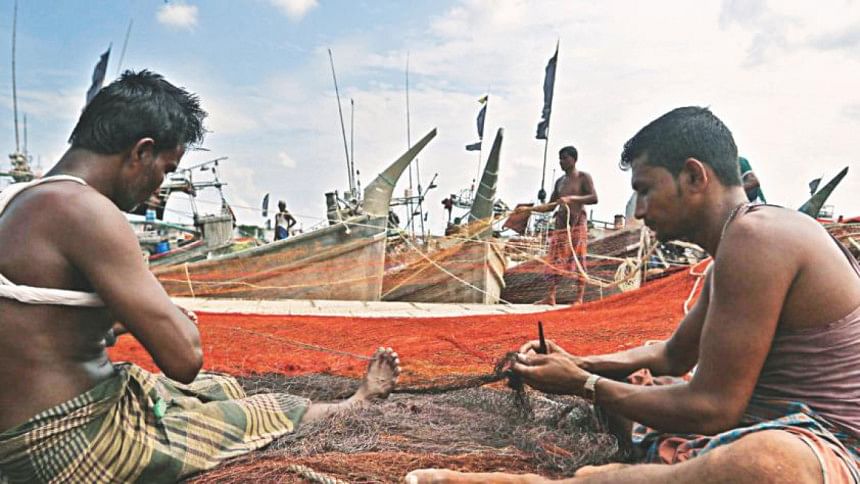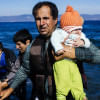Fishermen shortchanged

Fishermen in fourteen districts are being shortchanged by the authorities who have imposed a ban on the catching, selling, transportation, storage and exchange of Hilsa to sustain the population of the delicious fish; most of them have not yet received the rice that was promised to them by the government as compensation. Pushed to the wall, some of those who went fishing defying the ban were arrested, fined, jailed and had their fishing nets burnt down by the authorities.
We wish the authorities were as efficient in keeping their promise as they were enforcing the prohibition. Twenty days have gone by since the ban was declared without the rice—20 kilograms per family—reaching many families while relevant ministries blame each other for the failure. It is interesting, however, that the rice reportedly found way to the homes of affluent and politically connected people all across the country. No ministry or department has offered any explanation as to why and how that happened.
The ban on catching premature Hilsa is a good initiative for facilitating its breeding and growth. There is a high demand of the fish in the country and abroad and the move is likely to contribute significantly to the economy. But at whose expense? What message does the failure to compensate the fishermen send to them? That it is alright to stop plying their trade for their livelihood so that the fish could grow? The concerned ministries and departments should immediately step in to ensure the distribution of the promised rice to these people. That's not going to solve all their problems—rice is not the only thing one gets by—but it's a start.

 For all latest news, follow The Daily Star's Google News channel.
For all latest news, follow The Daily Star's Google News channel. 








Comments